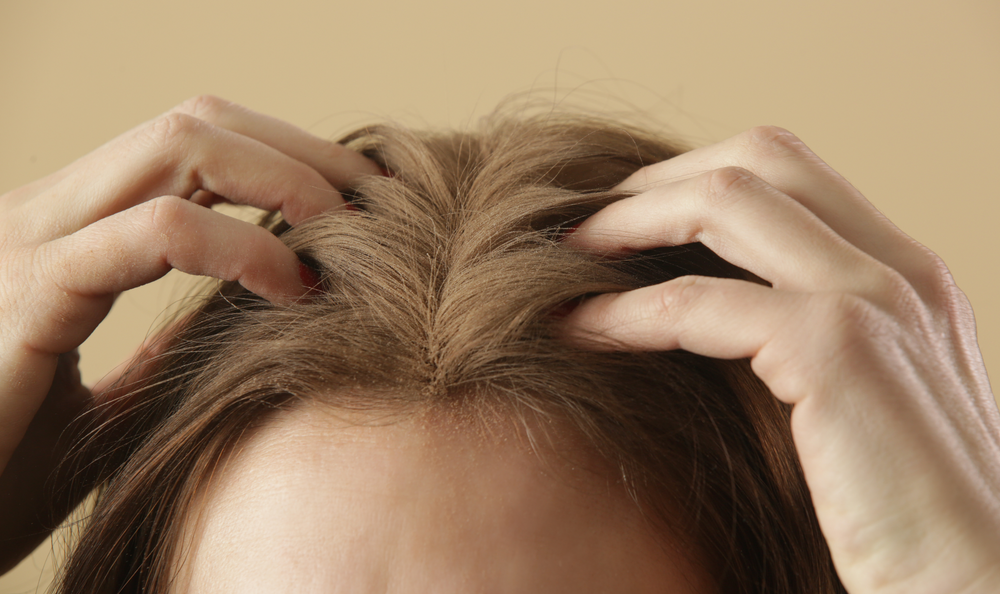Seborrheic dermatitis can be challenging to live with, but there are steps you can take, like using Divi's Scalp Serum, to help reduce the impact the condition has on your life.
Here's everything you need to know about seborrheic dermatitis and some useful tips for managing and treating the condition.
What Is Seborrheic Dermatitis?
It's a pretty difficult-sounding name, right? We agree with you!
Let's break it down to understand what this condition means. The term "seborrheic" refers to the sebaceous glands, "derm" refers to the skin, and "itis" means inflamed. In short, seborrheic dermatitis, also known as seborrheic eczema, is a non-contagious dermatitis of the scalp. It causes itchy red skin patches and greasy scales despite being relatively harmless. Additionally, the condition also causes the development of white or yellow flakes on your scalp.
Seborrheic dermatitis typically occurs on the scalp but can occur on other parts of the body with sebaceous glands. For instance, seborrheic dermatitis can affect the upper back, chest, face, eyes, arms, legs, and skin folds.
It's a lifelong condition that appears irregularly. Luckily, seborrheic dermatitis won't cause any serious harm to your body or hair, and products like Divi's Scalp Serum can help manage the symptoms.
Who Can Get Seborrheic Dermatitis?
According to Cleveland Clinic, seborrheic dermatitis affects around 11% of the global population. Infants younger than three months old and adults between the ages of 30 and 60 are most likely to get it. It's also more common in men.
People with specific health conditions are more susceptible to seborrheic dermatitis. We’ve listed the at-risk conditions below.
Immunosuppressive Diseases
- Adult Hodgkin's Lymphoma
- Adult Non-Hodgkin's Lymphoma
- Organ transplant recipients
- HIV
Psychiatric Disorders
- Depression
Congenital Disorders
- Down's syndrome
Neurological Diseases
- Spinal cord injury
- Facial nerve palsy
- Epilepsy
- Parkinson's disease
- Tardive dyskinesia
People who take psychotropic medications such as buspirone, chlorpromazine, and haloperidol decanoate are also quite prone to developing seborrheic dermatitis.
Causes of Seborrheic Dermatitis
Scientific research has yet to uncover the exact cause of seborrheic dermatitis. Instead, there are links to multiple possible causes:
- Genetics
- Increased levels of skin lipids
- An inflammatory reaction
- Heightened levels of hormones
- Malassezia globosa, a type of yeast that is present on everyone's skin but exists in greater levels on some more than other
In addition to the above, other factors can trigger or aggravate seborrheic dermatitis:
- Oily skin
- Stress
- The use of alcohol-based lotions
- A history of skin disorders such as acne, psoriasis and rosacea
While Divi's Scalp Serum and other products can't treat all of the root causes of seborrheic dermatitis, our ingredients can help manage the symptoms. More on those next!
The Symptoms Of Seborrheic Dermatitis
Unfortunately, seborrheic dermatitis presents itself in several ways. Here are some of the symptoms of the condition:
- Red skin
- Dandruff on your scalp
- Inflamed hair follicles
- Blepharitis, a scaly redness on the eyelids
- Flaky patches on your chest and around the hairline
- Redness around your body folds
- Crusty yellow scales, typically occurring in cases of "cradle cap" or infantile seborrheic dermatitis (scratching the scales may result in an increased inflammatory response or broken skin, leading to an infection)
How is Seborrheic Dermatitis Diagnosed?
Because of how it appears on the skin, diagnosing seborrheic dermatitis can be straightforward. A dermatologist may perform a skin biopsy, but this is primarily to rule out the possibility of other diseases, such as cancer, especially if your condition doesn't respond to the medical treatment.
How Is Seborrheic Dermatitis Treated?
Treatment of seborrheic dermatitis depends on age and whether it's on your face or body. Here, we're going to focus on scalp seborrheic dermatitis – our team here at Divi knows a thing or two about scalp health!
Scalp Seborrheic Dermatitis
Treating seborrheic dermatitis of the scalp tends to be relatively easy, especially if you don't have severe seborrhea. Divi's Scalp Serum contains ingredients designed to reduce inflammation and soothe the scalp. Our ingredients, which target the symptoms of seborrheic dermatitis, include ascorbic acid, caffeine, tea tree oil, green tea extract, rosemary leaf extract, peppermint oil, eucalyptus oil and more:
- Ascorbic acid is a potent antioxidant and well-known for its sebum-regulating properties. It can fight inflammation of the scalp.
- Caffeine is an anti-dandruff stimulant, has been shown to help reduce sebum production, and has a positive impact on various aspects of skin inflammation.
- Tea tree oil has natural antifungal properties and is recognized by the scientific community as one of the most effective remedies for dandruff. Since seborrheic dermatitis can be caused by yeast, tea tree oil's antifungal properties are welcome in treating the condition.
- Green tea extract contains potent antioxidants that neutralize free radicals. This ingredient is anti-inflammatory and can soothe a painful, itchy scalp.
- Rosemary leaf extract aids in inhibiting the inflammatory response of the skin cells on the scalp.
- Peppermint oil has antifungal properties and is known to control the production of excess oil in the scalp – a significant cause of seborrheic dermatitis.
- Eucalyptus oil is another antifungal agent aiding in soothing a dry and itchy scalp.

The benefits of each ingredient in Divi's Scalp Serum are backed by science, and our product is formulated with no harsh chemicals or parabens. It can be used as an ongoing means to treat the symptoms of seborrheic dermatitis.
How To Prevent Seborrheic Dermatitis
Cradle cap is natural, harmless, and treatable at home, whereas teenage or adult seborrheic dermatitis can be a bit more persistent. Luckily, the condition isn't harmful, and there are simple steps you can take to reduce its impact on your life.
Reducing the chances of flare-ups may primarily come down to lifestyle changes. Ensure that you get ample sleep, mitigate emotional stress, and get a daily dose of sunlight.
You can use Divi’s Scalp Serum and other scalp care products (Shampoo & Conditioner) as a daily preventative measure. In fact, our Scalp Serum is designed to remove buildup and keep your scalp in optimal health.
If you have been prescribed medical shampoos or skin products, be sure to stick to the instructions specified by your healthcare provider.
Living With Seborrheic Dermatitis
Luckily for babies, cradle cap won't cause much harm, generally isn’t painful, and rarely occurs past 12 months of age.
With teenagers and adults, body or scalp seborrheic dermatitis can happen throughout one's lifetime but can be controlled with proper patience and treatment.
Regularly using Divi's Scalp Serum and products can help manage the symptoms of seborrheic dermatitis; keeping your hair and scalp clean and healthy with products designed for this purpose is essential. Using our scalp care products can get you on the road to healthy and beautiful hair. It all starts with a healthy scalp that will produce the ideal conditions for incredible hair growth!
When To Consult A Doctor
While there are ways in which you can treat dermatitis at home, you may still have to consult your doctor. Seek out help from a healthcare provider under the following circumstances:
- When your symptoms keep getting worse
- If you've experienced flare-ups
- Cases of more severe seborrheic dermatitis
Does Seborrheic Dermatitis Result in Hair Loss?
According to Mayo Clinic, seborrhoeic dermatitis won't necessarily cause hair loss. However, excessive scratching can damage your hair follicles, which can lead to hair loss.
How Is Seborrheic Dermatitis Different From Psoriasis?
Psoriasis and seborrheic dermatitis are similar. Both can be found in similar areas of the body, and both are characterized by red patches.
Psoriasis is also an inflammatory skin disease, but one of the primary differences is psoriasis causes thicker and more defined scales than seborrheic dermatitis.
While it can be tempting to forgo a visit to the doctor and issue a self-diagnosis, we recommend you seek out professional medical help to determine whether you have seborrheic dermatitis or psoriasis.
Let Divi Help
Divi's Scalp Serum effectively treats the symptoms associated with seborrheic dermatitis. Our clean ingredients are gentle and soothing for individuals with various scalp and skin-related conditions. Divi's Shampoo & Conditioner are synthetic fragrance- and irritant-free, making them the perfect complement to those suffering from seborrheic dermatitis.




































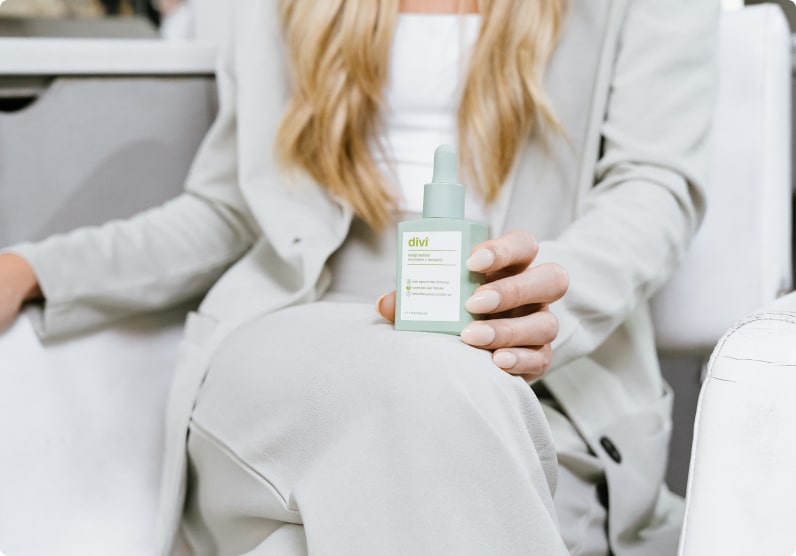
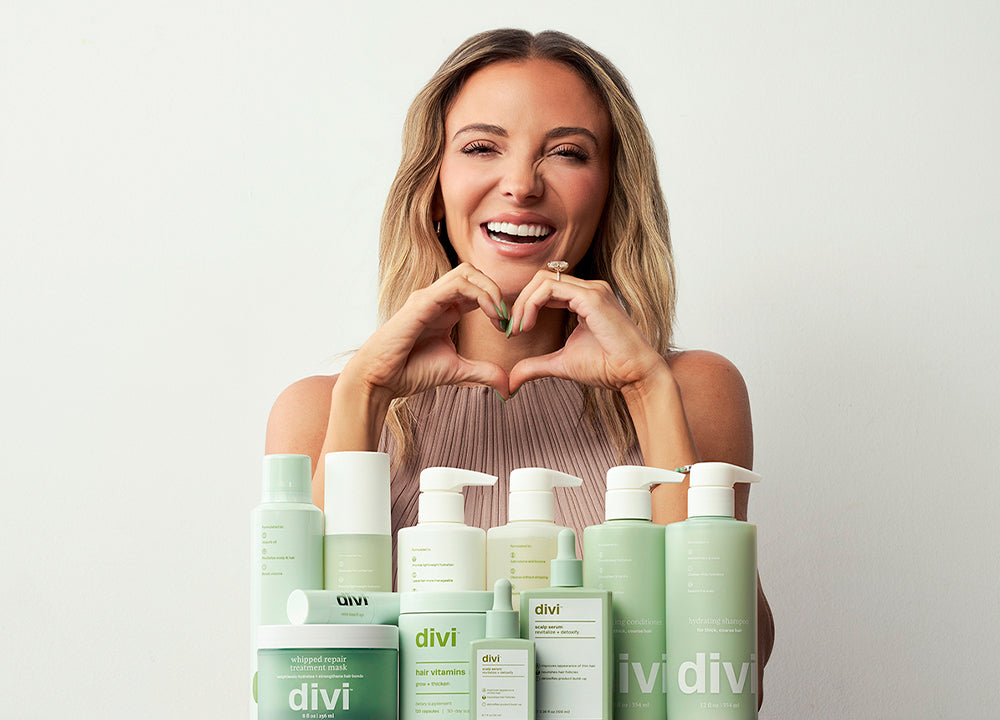

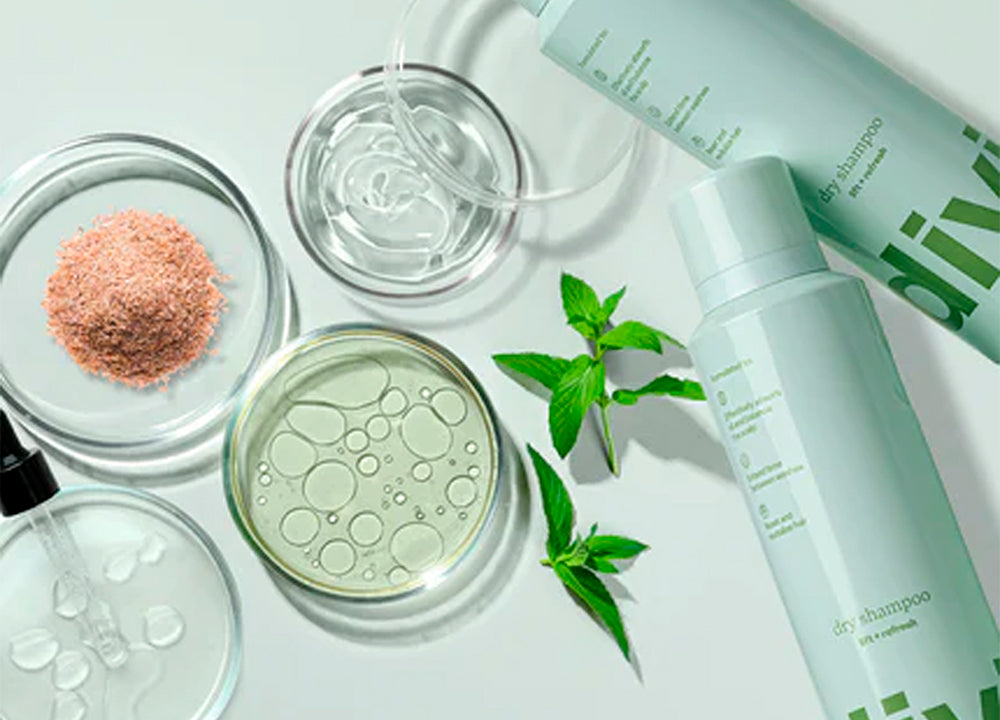

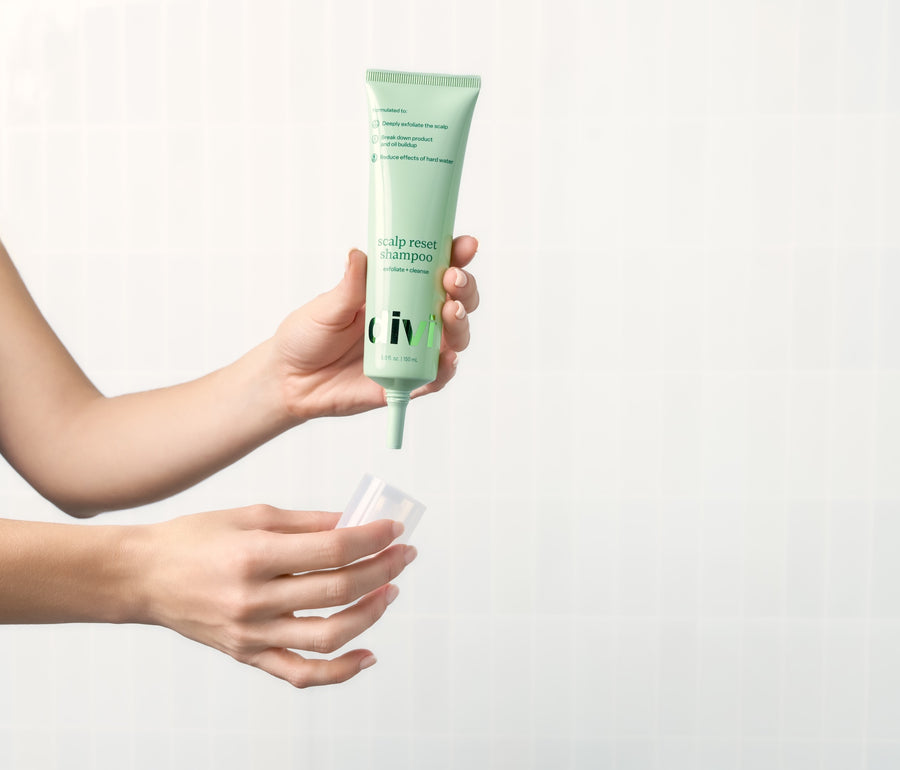

 Scalp Serum
Scalp Serum
 Scalp Reset Shampoo
Scalp Reset Shampoo
 Dry Shampoo
Dry Shampoo
 Best Sellers Bundle
Best Sellers Bundle
 Weekly Reset Duo
Weekly Reset Duo
 Root Touch Up
Root Touch Up
 Strand Plumping Styling Cream
Strand Plumping Styling Cream
 Root Reset Duo
Root Reset Duo
 3-in-1 Leave-In Conditioner
3-in-1 Leave-In Conditioner
 Air Dry Cream
Air Dry Cream
 Wash Day Essentials
Wash Day Essentials
 Frizz-Fighting Trio
Frizz-Fighting Trio
 Home & Away Dry Shampoo Bundle
Home & Away Dry Shampoo Bundle
 Volumizing Shampoo & Conditioner
Volumizing Shampoo & Conditioner
 Jumbo Volumizing Shampoo & Conditioner
Jumbo Volumizing Shampoo & Conditioner
 Volumizing Starter Bundle
Volumizing Starter Bundle
 Major Volume Bundle
Major Volume Bundle
 Volume Rescue Trio
Volume Rescue Trio
 Hydrating Shampoo & Conditioner
Hydrating Shampoo & Conditioner
 Whipped Repair Treatment Mask
Whipped Repair Treatment Mask
 Hydrating Starter Bundle
Hydrating Starter Bundle
 Hydration Heroes
Hydration Heroes
 Travel-Sized Volume Duo
Travel-Sized Volume Duo
 Travel-Sized Hydrating Duo
Travel-Sized Hydrating Duo
 Divi's Discovery Set
Divi's Discovery Set
